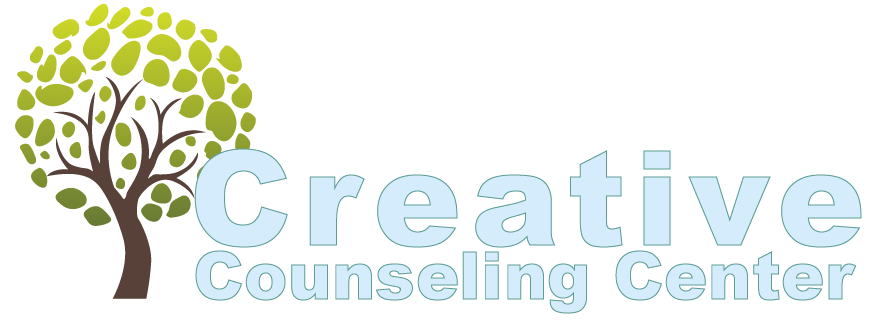THE EFFECTS OF SOCIAL MEDIA ON CHILDREN
With the U.S. Surgeon General’s advisory about the effects of social media on children, we wanted to explore the topic.
Social media has become a central part of the world we live in. And it is continuing to evolve with each passing day. All ages, from senior citizens to children as young as 8, are using social media on a regular basis.
When it comes to young developing brains, what are the effects of social media on children? We want to share what we found. Incidentally, much of what is share below applies to adults as well.
CHILDREN, SCREEN TIME AND SOCIAL MEDIA USE
Now more than ever, children are spending several hours per day in front of an electronic device. And their time spent is increasing as parents become busier and seeking ways to occupy their children. With easy access to computers, tablets, and phones, this leaves some children spending a good portion of the day engaged with electronics.
A recent study shows 62% of children spend more than 5 hours per day on social media and video games. This is an alarming amount of screen time. It raises even greater concern given the developmental stage of a young child’s brain.
Social media can’t be that bad for children, right?
HOW SOCIAL MEDIA AFFECTS CHILDREN
1. SOCIAL MEDIA ADDICTION
Let’s face it… social media is a monetized industry, designed to trigger the brain, leaving children (and adults) wanting more and more of it. Our children become drawn to it and addicted to it. They are bombarded with notifications. The many likes, comments, and messages have a feel-good effect resulting in a dopamine release in the brain. When dopamine is released, it triggers reward pathways, driving children to want to engage in the activity even more. This is what’s known as a cheap dopamine loop. These cheap dopamine hits rewire the brain and can lead to addiction. Similar to the relief an addict feels with drugs, alcohol, food or shopping, our children become drawn to social media as a “quick fix.”
Without limitations on, or a healthy relationship with, social media, it can lead to addiction that can get out of control if not addressed.
2. DECLINE IN MENTAL HEALTH
Social media use can also lead to severe mental health struggles in children. Regrettably, 58% of teens report that social media has made them feel sad or bad about themselves.
Social media helps children watch peers, role models and celebrities. Children are given binoculars, so to speak. By all appearances, others have incredible lives. A child cannot help but wonder why their life is not as grand. They begin believing their life is nothing compared to how great and easy others have it.
Children also have the ability to see what their peers are doing, who is hanging out with whom, who was invited to the party, etc. and this can leave them feeling left out, dejected, and isolated.
When life feels hard, children are turning to social media as a crutch or distraction. This means they are not given the opportunity to practice healthy coping skips to sort through life stressors and unpleasantries.
All of this can lead to increases in anxiety, panic attacks, depression, suicidal ideation, and eating disorders. Further, a study in the Journal of the American Medical Association found a statistically significant link between frequent social media use and Attention-Deficit/Hyper-activity Disorder (ADHD).
HOW YOU CAN HELP YOUR CHILD
If you notice your child using social media for hours a day and showing signs of anxiety, depression, or ADHD, there are ways you can help them.
- Limit their screen time and social media activity. Work together to create healthy boundaries to turn their social media use into a tool for enjoyment rather than a way to distract themselves.
- Encourage them to spend time moving their body and getting active. Exercising, taking walks, and spending quality time with friends are all great ways to help reduce the negative mental health impacts of social media.
- Seek therapy to help your kids develop healthy coping mechanisms for stress and anxiety. A licensed therapist can help develop the best plan of action to help your child develop healthy coping skills to manage their stress.
With patience and consistency, you can help your child avoid the pitfalls social media may cause by helping them create a healthy relationship with it.
CONTACT CREATIVE COUNSELING CENTER
Are you or your child struggling with the effects of social media use? Does your child seem more agitated and irritable than normal? Request a Free Phone Consultation by completing the brief form below. We will have one of our team members reach out to learn more about your specific circumstance. Together we’ll determine whether our practice and which therapist may be a good fit for your needs. We would like to help you and your child live a life you will love. We hope to hear from you soon.
Contact Us
We will get back to you as soon as possible.
Please try again later.

ABOUT THE AUTHOR
Teri Karjala is a Licensed Professional Counselor & Marriage and Family Therapist. She is the founder and Executive Director of Creative Counseling Center, LLC. Working in the field since 1999, Teri and her team of therapists specializes in counseling for those who have experienced trauma. They work with children as young as age 2, as well as teens and adolescents, adults, seniors, families, and couples.
REQUEST A FREE CONSULTATION
If you have questions about counseling, would like to find out if counseling could help you or a loved one, or are interested in learning more about our services, just complete the brief form below to request a Free Phone Consultation. A member of our team will contact you shortly. After a brief conversation, we'll determine together whether our practice is right for you and which therapist may be best suited for your specific circumstance.
Finding the right therapist, one you click with, is less about the therapist's experience and qualifications and more about the therapist's personality. So let's talk. Let us match you with a therapist you have a high likelihood of clicking with.
Fields marked with an * are required.
Contact Us
We will get back to you as soon as possible.
Please try again later.
GET SOCIAL WITH US
CONNECT WITH US
PHONE
EMAIL US
ADDRESS
6021 South Syracuse Way, Suite #216
Greenwood Village, CO 80111
OFFICE HOURS
Monday-Thursday: 8:30am-8pm
Friday: 12pm-5pm
Saturday: 12pm-4pm



